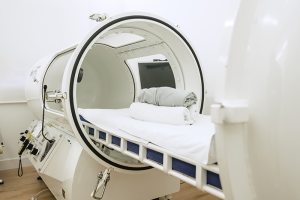Getting the most from technology
Can technology aid in attaining operational excellence? Michael A. Hatton, CHFM, FASHE, vice president at Memorial Hermann Health System in Houston, believes it can be a hindrance. “There are so many technological advancements going on simultaneously, and some are siloed because they are different technologies quickly married together, and so early in their roll-out cycles that they’ve yet to mature enough to be debugged,” he says. “That leads to a lot of integration challenges and probably wasted investment dollars in the industry.”
Ryan W. Ollie, PE, CEM, manager of facility operations at Advocate Condell Medical Center in Libertyville, Ill., also cautions that technological evolution can at times be a double-edged sword.
“Technology is a great tool, but it can’t do the job for you,” Ollie says. “Sometimes you have to take a step back and ask what you are really trying to get out of these cool innovations and analytics. Keep it simple. Sometimes it’s about cutting out the complexities and just getting from Point A to Point B as simply and quickly as possible.”
However, Michael Joseph Wood, CHFM, CHSP, CHEP, director of facilities support systems at Parkland Health & Hospital System in Dallas, believes technology has provided insight into how health care facility systems function, enabling facilities management teams to be more proactive as opposed to reactive.
Technology has permitted teams to run their systems more efficiently, he says. “We can do more on the fly, whether through mobile devices [or other tech tools],” Wood says. “There is technology out there, but sometimes we don’t just use it. We don’t do our due diligence on the front end to realize what we have or could have.”
A clear instance in which technology was directly responsible for improving operational excellence came when the American Society for Health Care Engineering developed the Energy to Care dashboard. The dashboard provides trend data that enable facilities managers to more effectively track their energy use over time. “It’s positively impacted their quest for continuous improvement,” says Kara Brooks, LEED AP BD+C, sustainability program manager at the American Society for Health Care Engineering.





